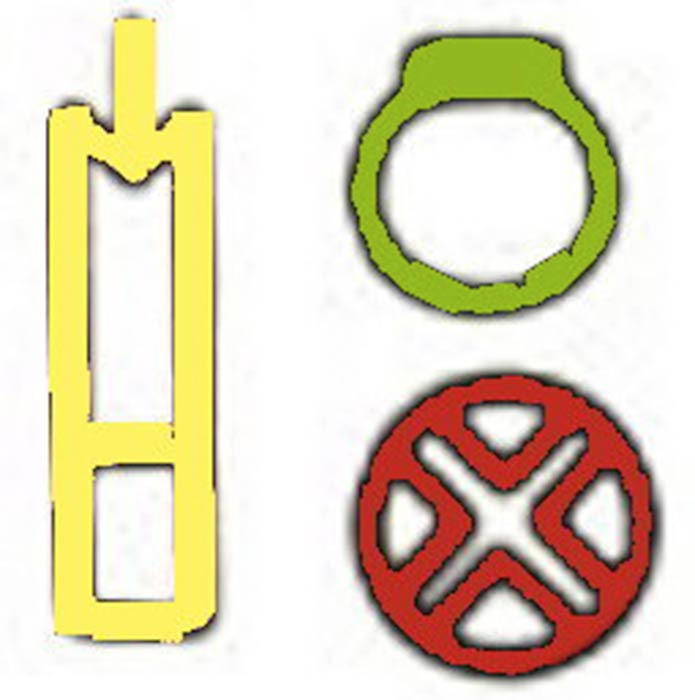IWNW The Egyptian Atlantis, City of Yah Weh and Ra
The name given by Egyptologists for the sacred City of the Sun God, Ra, in ancient Egypt was IWNW or IUNU. It is also affirmed not only by those who have studied the country of the Nile for many generations, as well as the Bible, that this was the city that became known to ancient Greeks as Heliopolis and to the Hebrew people who once ruled the Lands of Egypt as Bethshemesh. The various Bible verses in Jeremiah confirm that Heliopolis was another name for Bethshemesh. IWNW or IUNU was the City of the Pillars located at Ayn Shams, a north-eastern suburb of modern-day Cairo.
These hieroglyphs begin with a pillar which in Egyptology is IWNW or IUNU. To the top right there is a pot, which represents the two-consonant letters ‘NW’. It was not spoken and only placed after the main word, ‘IWNW’ to emphasize the final letters ‘NW’ of ‘IWNW’. Beneath it the disc enclosing a cross shape is another unspoken hieroglyph that is classed as an ideogram or determinative. It tells that the word ‘IWNW’ is a city or a town.
The Pillars of Atlantis
This is a very important point which one should take notice of when considering the story of Atlantis. The ‘Pillars of Hercules’ was the phrase that was applied in antiquity to the promontories that flank the entrance to the Strait of Gibraltar. The Greek gods, including Heracles (Hercules), came on the scene thousands of years after the Egyptian concept of a heavenly deity had already been established. In the Egyptian mind it would never have occurred to them that such pillars straddled the western North African coast and the tip of Europe. For Egyptian priests it had to refer to the columns and obelisks of IWNW, or possibly the Giza Pyramids.
The only ancient source for the story of Atlantis came from Plato captured in a dialogue of exchanging ideas. He got it all from another Greek called Solon, who in turn claimed that he was told about Atlantis by priests when he had visited the town of Sais in Egypt many years earlier. This sounds very much like the tales that go around and are invariably attributed to a friend who heard it from a friend who knew somebody that saw it.
Greek Derivatives
There was a great city which was protected from the flood waters of the Nile by a huge system of dikes built, one is led to believe, by the first king of Egypt, called Menes. However, there never was a king of Egypt with that actual name. Why Egyptologists love to forget the real Egyptian names and substitute them with Greek alternatives that were not even conjured up of for many centuries, even millennia in some cases, only goes to prove that they are perhaps not that much concerned with real facts but prefer to use names that attract more publicity. Some of the Greek derivatives are so far removed from the original names, it is beyond belief and sow seeds of doubt in everything else coming from the same pen or quill of feather. Some examples are ‘Osiris’ instead of ‘Uasar’, ‘Iesous’ instead of ‘Iwsa’, ‘Horus’ instead of ‘Har’ or ‘Hary’, ‘Isis’ instead of ‘Ahst’, ‘Memphis’ instead of ‘Inebw-Hedj’, ‘Thebes’ instead of ‘Uast’, ‘Abydos’ instead of ‘Abedjw’.




